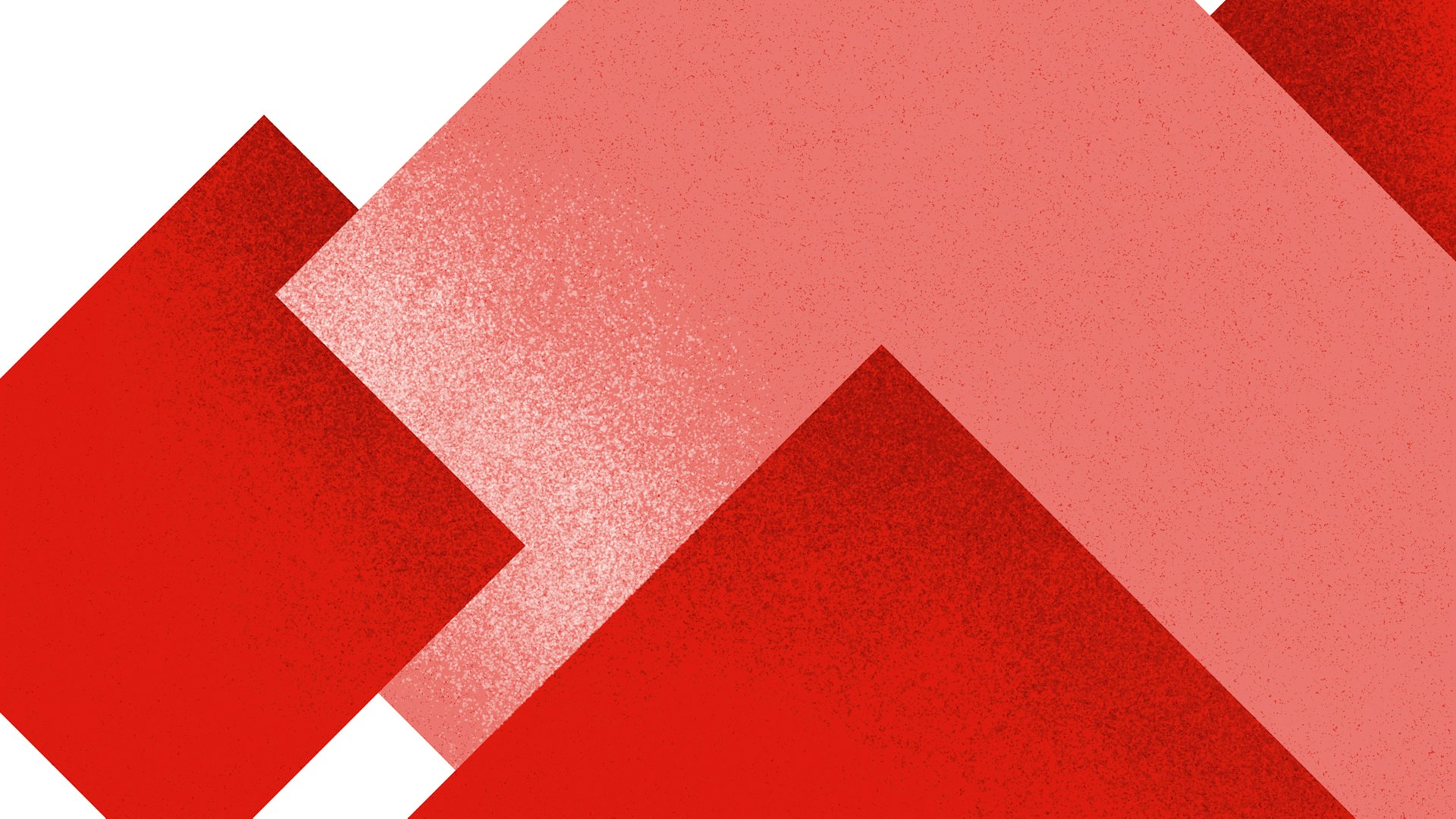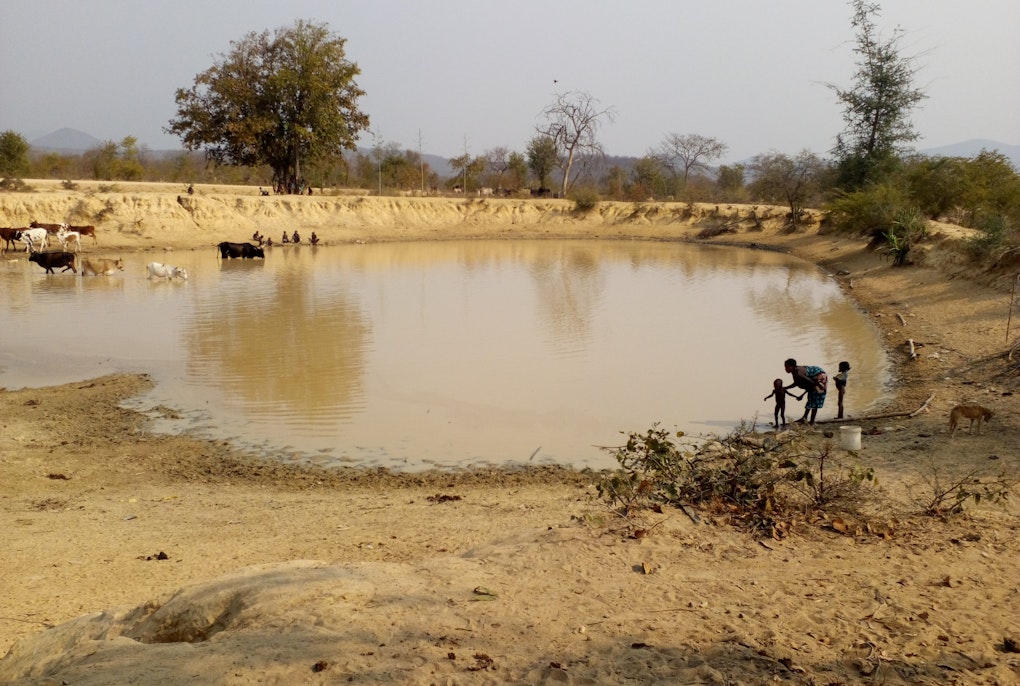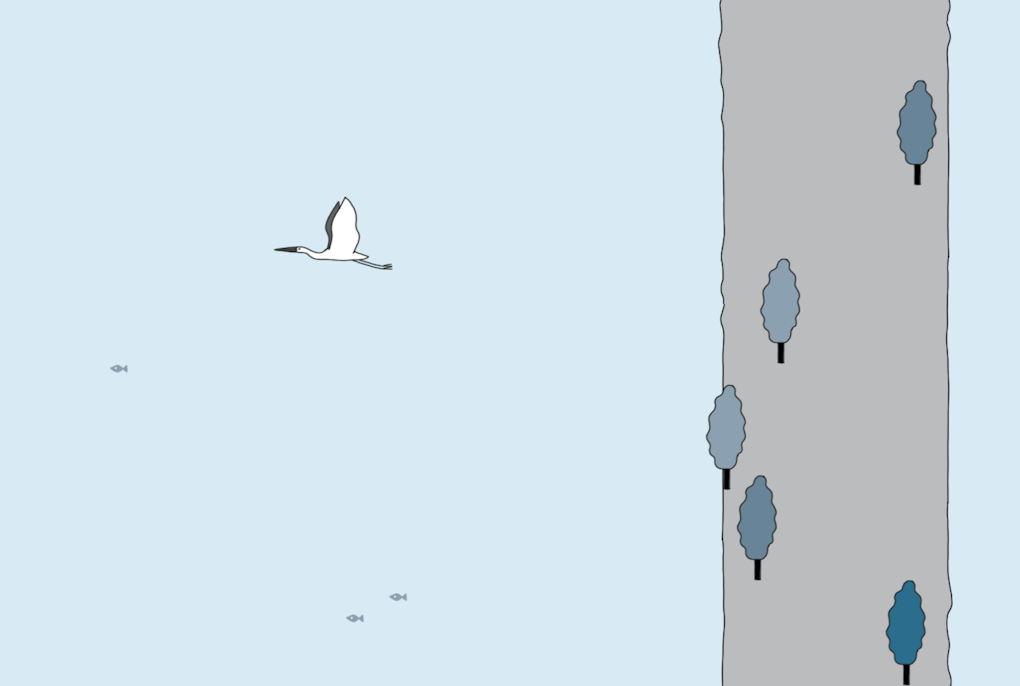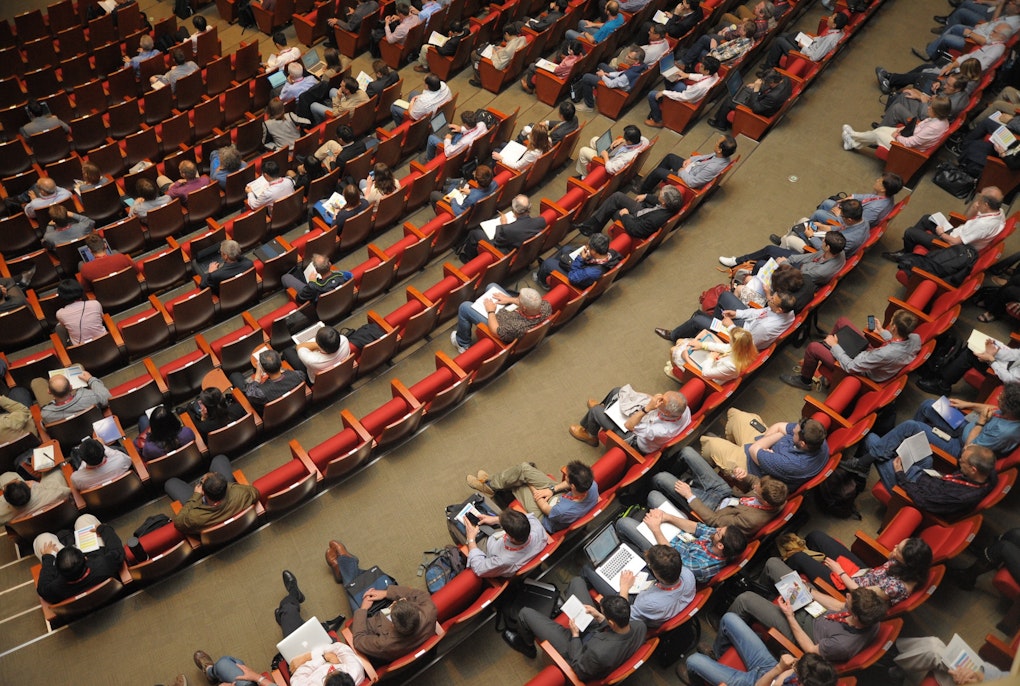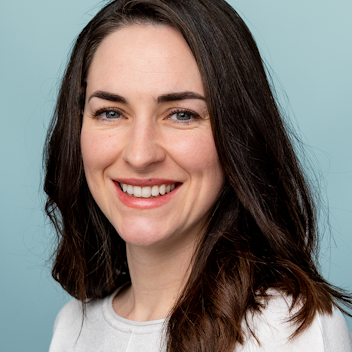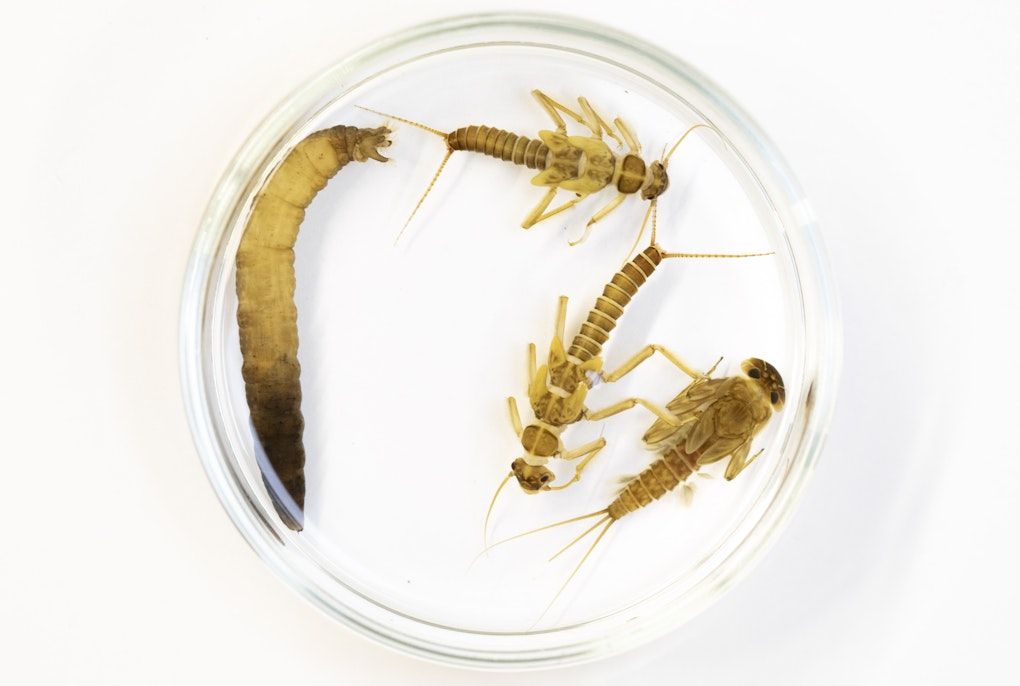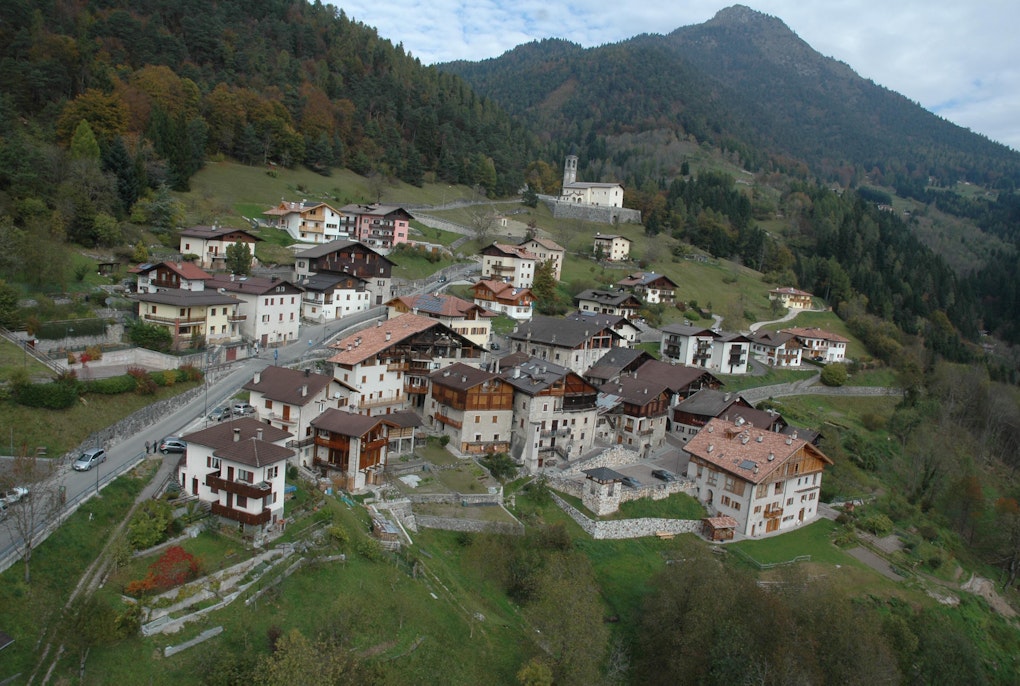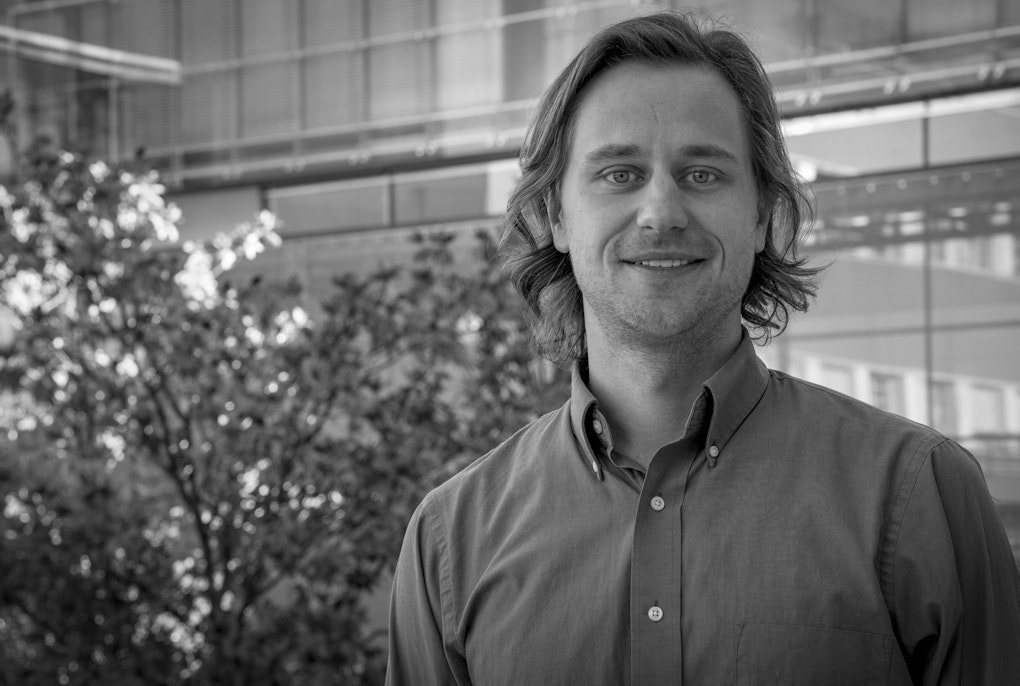magazine_ Interview
"Democracy is risky"
Conversations between disciplines: interview with limnologist Roberta Bottarin and constitutionalist Francesco Palermo.
Both draw on their first-hand experience - she started working at Eurac Research in 1998 and he in 1994 - to review how research has changed over the years and how the people who do the research have also changed. Not only that, but limnologist Roberta Bottarin and constitutionalist Francesco Palermo also reflect on how increasingly essential it is to communicate their work.
"In universities it is easier to shut oneself up in the laboratory or the library, at Eurac Research the social responsibility of research is much more deeply rooted".
Francesco Palermo
When was the last time you told a non-expert audience about your research and how did it make you feel?
Roberta Bottarin: The last time was a few days ago, on the beach. Someone found some seaweed covered in small animals on the shoreline and in a flash, I found myself surrounded by a bunch of people, explaining the importance of these organisms. I had fun, as I always do! Water is a topic that comes up easily in conversations and I talk about it with passion. I have always found popularization rewarding and this interest has been cultivated by good examples among my figures of reference.
Francesco Palermo: I last spoke about the Constitution last night at dinner, to my children, to explain how the President of the Republic is elected. I believe that this penchant for popularization also has something to do with our scientific growth at Eurac Research. Whereas in universities it is easier to shut oneself away in the laboratory or the library, here the social responsibility of research is much more ingrained. If you then deal with people’s rights, staying locked in your study makes your work sterile.
But perhaps talking about the value of democracy outside the academic community, especially in these times, is even more frustrating.
Palermo: Actually, the satisfaction is even greater because you can see how fundamental democracy is and, when communication works, you really give meaning to your research.
Of course, with social media the situation has changed because the audience of people who can intervene has widened so much. The pressure you can put on decision-makers is much stronger than with newspapers, and that is not always a good thing: managing a so-called ‘shitstorm’ on social media can be really difficult. Just think of campaigns that insist on the population’s perception of insecurity, when in fact all the data confirms that crimes are falling.
Bottarin: The trouble is, that on social media the risk of distortion of information is very high. Too often we only refer to comments and we lose sight of the original news and the reliability of the source.
Palermo: Indeed! Verifying so much information is often difficult. I am reminded of an anecdote from my tenure in the Senate where we had to vote on extending the deadline to implement a rule which required dairies to separate soft and hard cheese production areas. I knew nothing about it and there was no time to do research; and while the government was urging us to vote for the extension to help small producers, a bombardment of messages started on social media. They claimed that a mafia lobby, which had infiltrated Campania’s mozzarella factories, was behind the request. Whether or not we supported the mafia we will only know in twenty years. Maybe.
Has social media also changed the way we do research?
Palermo: For sure! See this pile of books on my desk? I promise myself to read them, but no matter how much I reproach myself, the truth is that the pile will collapse sooner or later because I tend to give precedence to faster means of updating, such as authoritative blogs and online journals, and I use twitter as a research tool, following the profiles of colleagues and organizations.
Bottarin: The fact that we can more easily and quickly involve an ever-wider network of people also makes previously unthinkable Science & Society projects possible. I’m thinking of one of our environmental monitoring initiatives: thanks to a simplified research protocol, anyone who was passionate could send us photos of butterflies with some data and thus help us to complete an alpine repertoire. And I am also thinking of the farmers in the Mazia valley who call us to warn us when the cows overwhelm our weather stations. We got them involved and now, at least some of them, take our work to heart, you can’t imagine how satisfying that is!
Is this new sensitivity mainly due to more agile tools or has interest in knowledge building processes increased in general?
Bottarin: I hope that we have succeeded in increasing public awareness.
Palermo: I share the hope, but I am not so optimistic. Social media in some cases, is the only means of reaching the younger generation - I am thinking of some of our participatory projects in municipalities but they are not enough. On the net it is too easy to find what is needed to confirm one’s own ideas.
Among those who know how to use social media conscientiously is Greta Thunberg. How useful is this phenomenon for science?
Bottarin: It was certainly a wake-up call to those who up until now had not paid attention to certain news that had actually been talked about for years. This is a great thing. The only risk is losing a bit of the actual science: not all the details in Thunberg’s messages are correct and it’s a bit frustrating for researchers, who have been talking about it for years.
Palermo: Denunciation has great media visibility, yet we will have to see if it will also have a positive effect. Unfortunately, we have learnt nothing from the many emergencies of recent years, from terrorism to the pandemic via the financial crisis and the management of migratory flows. We have not and are still not making any effort to build the legal scaffolding that would prevent us from having to hurriedly pass legislation when the roof is already burning. The problem is that the next crisis, the environmental one, is one that we are already in!
"If we want people to tune in to the objective, we must not always just point out the shortcomings, but also praise the positive results."
Roberta Bottarin
As representatives of the scientific community, what can you concretely do to counter the climate crisis?
Bottarin: The truth is that even for us there are many aspects that are still not entirely clear, especially with regard to timing and interconnections between the various sectors. It is as if our planet is a patient with many pathologies: addressed individually they could be cured, but as a whole, the picture is critical. Even something insignificant could be enough to make it collapse, and we cannot predict what or when.
Palermo: History teaches us that research is a vox clamantis in the desert, and it often takes generations for people to devote themselves to the issues raised by science. This is because man is self-destructive and, as Max Weber explained, collective intelligence is quite different from individual intelligence and so far, it has worked. Will we manage it again, this time too?
Bottarin: I agree, but I would also like to emphasize how important it is to give clear data and concrete indications, without seasoning them with panic. If we want people to tune in to the goal, we must not always just point out the shortcomings, but also praise the positive results. Pollutants have decreased thanks to purifiers that work, well-designed hydropower plants allow us to produce cleaner energy without compromising water quality. It can be done, and appreciation is important because it gives you fertile ground to move forward.
Should scientists be a little more political and politicians a little more scientific?
Palermo: We must be careful of superstar researchers, however useful they may be, because they can be manipulated by the media. For example, it is important to highlight the dangers of a very plausible emergency environmental legislation, which is bound to happen, it’s only a matter of time. This will likely see drastic and painful bans. But as researchers we can only bring data and predictions as close as possible to the decision-makers for them to consider in their work; we can’t take that last step for them. We can only write and write and write, constantly repeating what we study, always ready to be proven wrong.
Given that research constantly negotiates with uncertainties, how do we monitor its quality? How have evaluation systems evolved over the last thirty years and what are the prospects?
Bottarin: Everyone today feels like a specialist, a world that knows everything, that knows best. It has never been as evident as it is today. That is why verifying sources is essential, albeit not easy. The process of validating data is more rigorous than it used to be - with peer reviewing, experts review the results before publication and this protects us from the ‘opinion shooters’. In addition, at Eurac Research, we now count on the specific support of a statistics office and a communication office, which help us to convey clearer and unambiguous messages.
Palermo: The peer reviewing system has its limits, especially in non-bibliometric disciplines that have more fluid aspects, but this is the way. The same goes for Open Science, by making materials and data available to the whole community.
The pandemic has made terms like preprint, open data and the names of hitherto unknown journals and databases commonplace. Is democratic to give everyone access to everything?
Palermo: Democracy is risky, but we don’t have alternatives.
When you decided to become a researcher, the landscape was quite different in South Tyrol than it is today. How would your career be different if you started it now?
Palermo: Today the climate is certainly more open. For a start, today I would receive support for my PhD instead of having to do it in a semi-clandestine manner. And then I would probably not have the ambition for a university professorship as I did before. Back then it seemed to me the only possible goal. Today, paths are more permeable.
Bottarin: My good fortune was that I knew from a young age that I wanted to be a biologist. I was convinced of that even when my father urged me to study law or medicine, insisting that there were few biologists employed in South Tyrol and that I would probably not be able to return after university. Instead, I didn’t give up and came back, to work at Eurac Research. So today I would probably stubbornly take the same route again, but with far fewer obstacles.
How are the curricula of your employees changing, if at all?
Bottarin: The younger generation has incredible opportunities, starting as early as high school. I always gladly participate in the orientation initiatives of the provincial MINT group because I see myself at those desks. The paths today are richer with experiences abroad and different specializations. The youth are brilliant, even the personalized graphics of their CVs are more appealing than our boring European CVs!
Roberta Bottarin
Roberta Bottarin, a limnologist specialising in Alpine watercourses, studied in Ferrara and Parma. As well as being vice head at the Institute for Alpine Environment, she has been vice director of Eurac Research since 2016. She loves sampling streams in high boots, cheering at volleyball matches and taking photographs.
Francesco Palermo
Francesco Palermo is a constitutionalist and full professor of comparative constitutional law at the University of Verona and the head of the Institute for Federalism at Eurac Research. He has taught at various European and American universities and worked for the OSCE, the Council of Europe and the European Union, especially on autonomy issues and minority rights. He sleeps little and travels lots, loves reading, hockey and the mountains.
